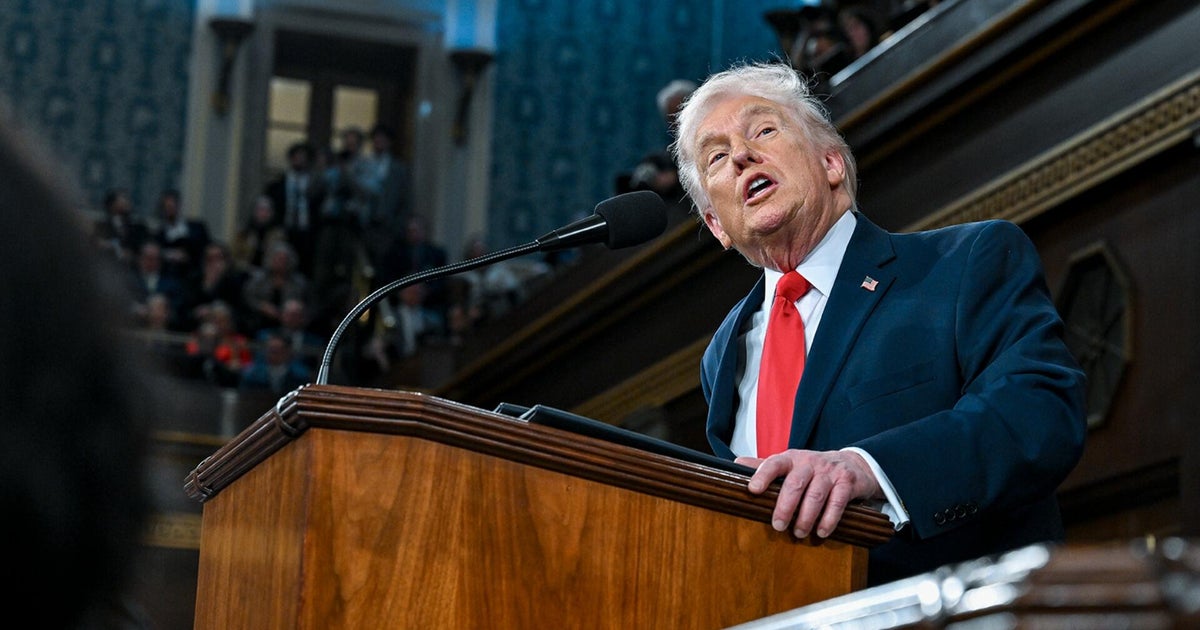Automakers and farmers could get walloped by Trump's Mexico tariffs
- Auto parts and vehicles represent a significant amount of trade between the U.S. and Mexico.
- Vehicle costs for American consumers could rise almost 4% if the tariffs are enacted.
- The threat puts at risk the United States-Mexico-Canada Agreement, a trade deal that hasn't yet been ratified by Mexico
President Donald Trump's surprise announcement that his administration will levy a 5% tariff on all Mexican imports starting on June 10 could create economic havoc for automakers and the agriculture industry, while raising costs for American consumers and businesses.
Mr. Trump said the percentage will gradually increase — up to 25% — "until the Illegal Immigration problem is remedied," referring to the surge of Central American migrants trying to cross the U.S. border. The announcement, which comes while the Trump administration is also waging a trade war with China, wasn't well received by Wall Street, with major stock indexes sliding more than 1% on Friday.
"The latest tariff threat with Mexico was quite unexpected, as we've been hearing how well discussions have been going with both Canada and Mexico," Ryan Detrick, senior market strategist for LPL Financial, said via email. "This is just the latest worry to put on the fire for investors. The big question at the end of the day though is can we really fight two trade wars at the same time?"'
Cars hit the hardest
Automakers' stocks slumped on Friday, including Ford Motor and General Motors, reflecting the industry's reliance on open trade between the two countries. Auto parts and vehicles manufactured in Mexico represent the biggest chunk of its trade with the U.S., totaling $93 billion last year.
In the 25 years since NAFTA, the U.S. auto industry has developed deep connections with its southern counterpart, with parts often crossing the border many times before ending up in a vehicle.
Take the wires in your car. They connect power everything in a vehicle — from dashboard electronics to the engine ignition to power for windows. Substantially all the wire harnesses used in North America come from Mexico, with the remainder coming from China, said Peter Nagle, senior automotive economist at IHS Markit. And profit margins on these components are slim, which means "they would be hard-pressed to weather significant tariff increases," Nagle said.
And the impact goes beyond a few dollars' increase. "Even if a tariff is only 5%, which is relatively manageable, you'll have logistical problems," Nagle said. "Right now it's relatively open borders for commercial traffic. With the tariffs... you'll have paperwork, logistical slowdowns, staffing concerns."
Detroit's roots in Mexico
"Remember, 17% of the cars Detroit sells are built in Mexico," Jack McIntyre, portfolio manager at Brandywine Global, said in an emailed note. On average, he said, the price of a new car might increase by $1,500 or more, leading to a drop in U.S auto sales, he noted.
That would hit some automakers harder than others. Nearly one-quarter of Fiat Chrysler's U.S. sales are sourced in Mexico, according to UBS analyst Colin Langan. For GM, that figure is about 16%. (Overall, 12% of U.S. car parts come from Mexico, he said.) Both automakers build their highly profitable full-size pickups in Mexico, compounding the tariff hit.
Automakers have large percentages of foreign auto parts in their vehicles, sometimes more than half. About 44% of the parts used to manufacture the Chevrolet Silverado stem from Mexico, while another 10% is imported from other countries, for example.
If tariffs reach 25%, as they are set to do on Oct. 1, it would raise car prices by 3.6%, Langan estimated.
"Another tax for Americans"
Other products that the U.S. imports from Mexico include electrical machinery, at $64 billion in imports, and agricultural imports, at $26 billion. Mexico is the largest agricultural supplier to the U.S.
The costs to consumers could be considerable, with Raymond James estimating that U.S. businesses and consumers would shell out $86 billion in tariffs. That's on top of $62.5 billion in tariffs placed on Chinese goods by the Trump administration, which went into effect June 1 Beijing time.
The apparel industry decried the Mexico tariffs, saying it represents "another tax for Americans." Mr. Trump has continuously misrepresented who pays tariffs, falsely stating that China pays the tariffs. In fact, U.S. importers -- businesses like Walmart and Costco -- pay the tariffs, with many retailers warning they will need to pass on the costs to consumers by raising prices.
"President Trump is once again taking aim at America farmers, attacking their livelihoods while they are still reeling from losing export markets in China, Europe, and elsewhere thanks to previously imposed tariffs and counter tariffs," said Rick Helfenbein, president and CEO of the American Apparel & Footwear Association, in a statement. "The bottom line is that these tariffs are disastrous for the American economy."
Avocado prices
One of Americans' favorite foods may get socked by the trade war: avocados. Prices of avocados have already doubled over the last two months amidst the Trump administration's rhetoric about immigration and trade, Bloomberg News notes.
Other foods that would likely increase in price for American shoppers are berries and asparagus, which are also imported from Mexico.
New trade agreement now uncertain
Mr. Trump may have dampened his own chances at passing a new trade agreement between the U.S., Canada and Mexico, something that hours before the White House announced the Mexico tariffs seemed possible, note experts including Clayton Allen from Height Securities.
The United States-Mexico-Canada Agreement (USMCA), a trade deal that is the cornerstone of Trump's legislative agenda and seen as beneficial to his reelection effort, hasn't yet been ratified by Canada or Mexico. Keefe, Bruyette & Woods analyst Brian Gardner thinks the prospects of passing the USMCA have fallen to less than 50-50 following Mr. Trump's threat against Mexico.
The White House on Thursday formally notified Congress the new agreement is headed its way, something it must do formally 30 days before it can send over legislation to implement the new pact.
"The new tariff threat likely halts any progress on Mexican ratification, and provides Speaker [Nancy] Pelosi with a perfect excuse to delay U.S. consideration," Height Securities analyst Clayton Allen wrote in a note. Economists at BNP Paribas said that Mexico would likely come up with "tit-for-tat" tariffs "designed to exert the greatest possible pressure on Republican constituencies."
The U.S.' dealings with Mexico could also give concern to China. The move signals that "no deal is ever done, and our negotiating style is basically to bully," Mary Lovely, an economics professor at Syracuse University and a fellow at Peterson Institute for International Economics, said in an interview on Bloomberg television.
--With reporting from The Associated Press.



